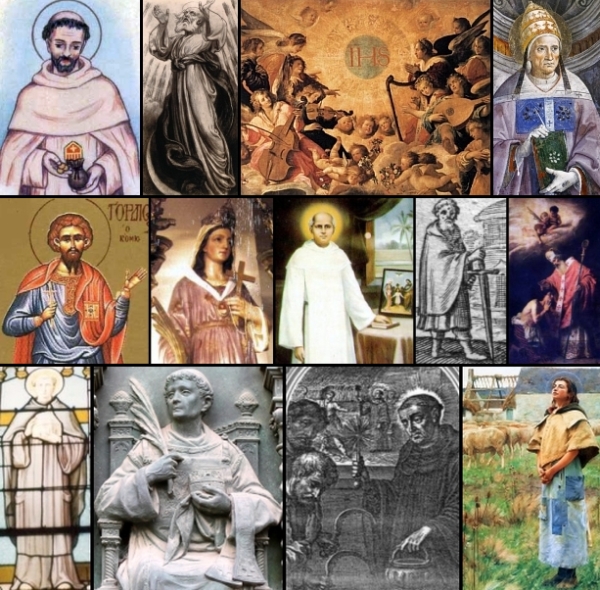 The Lord chiefly desires of us that we should be completely perfect, that we may be wholly one with Him. Let us aim, therefore, at whatever we need to reach this. - Saint Teresa of Avila
The Lord chiefly desires of us that we should be completely perfect, that we may be wholly one with Him. Let us aim, therefore, at whatever we need to reach this. - Saint Teresa of Avila The Lord chiefly desires of us that we should be completely perfect, that we may be wholly one with Him. Let us aim, therefore, at whatever we need to reach this. - Saint Teresa of Avila
The Lord chiefly desires of us that we should be completely perfect, that we may be wholly one with Him. Let us aim, therefore, at whatever we need to reach this. - Saint Teresa of Avila
Father Peter Faber, a companion of Saint Ignatius and highly esteemed by Saint Francis de Sales, often dwelt on the thought that God greatly desires our advancement. And so he endeavored to grow constantly, and not to let a day pass without some progress in virtue, so that he gradually rose to great perfection and a high reputation for sanctity.
Saint Pachomius and Saint Anthony, by studying the virtues of others, stimulated themselves to attain similar excellence.
The Venerable Sister Mary Villani had the following vision. On the Feast of Saint Francis, for whom she had a particular devotion, this Saint appeared to her and led her to a lofty place, more beautiful than any she had ever seen. To reach it, one was obliged to ascend four very high terraces, which signified, as the Saint revealed to her, the four degrees of perfection. With great difficulty she ascended, by his help, the first terrace; and he explained to her that this was the first state of perfection, called purity of conscience, which borders on angelic purity. In it the soul becomes like that of a little child, enjoys a pure and holy tranquility, never thinks evil of others, nor interests itself in what does not belong to its own position. Thence he brought her up to the second terrace, telling her that whoever had arrived at purity of conscience becomes capable of prayer and of true love, which is the inseparable fruit of prayer. Here he enumerated to her the properties of true love, which is pure, simple, unselfish and founded upon the truth of God, who can give Himself only to souls already possessed of purity. Then he raised her to the third terrace, that of the cross and mortification, adding that from purity and love the soul passes on to taking up the cross courageously and to being itself crucified, and that to arrive at this state one must acquire four cardinal virtues. These are: a true mortification of all vices and of every earthly affection; a perfect poverty of spirit, which tramples underfoot all temporal goods; a living death, by which the soul dies to itself and to all affections of sense, and lives in a total annihilation and transformation into its crucified Lord, so as to be able to say: "I live, now not I; but Christ lives in me." - Galatians 2:20 The soul that has gained this state seems to have conquered the world, and bears sufferings and crosses as if it could no longer feel them. The fourth terrace, he said, typified the state of real and perfect union.
- text taken from A Year with the Saints, composed by an unknown Italian, translated by a member of the Order of Mercy; it has the Imprimatur of Archbishop Michael Augustine Corrigan, Archdiocese of New York, New York, 21 January 1891